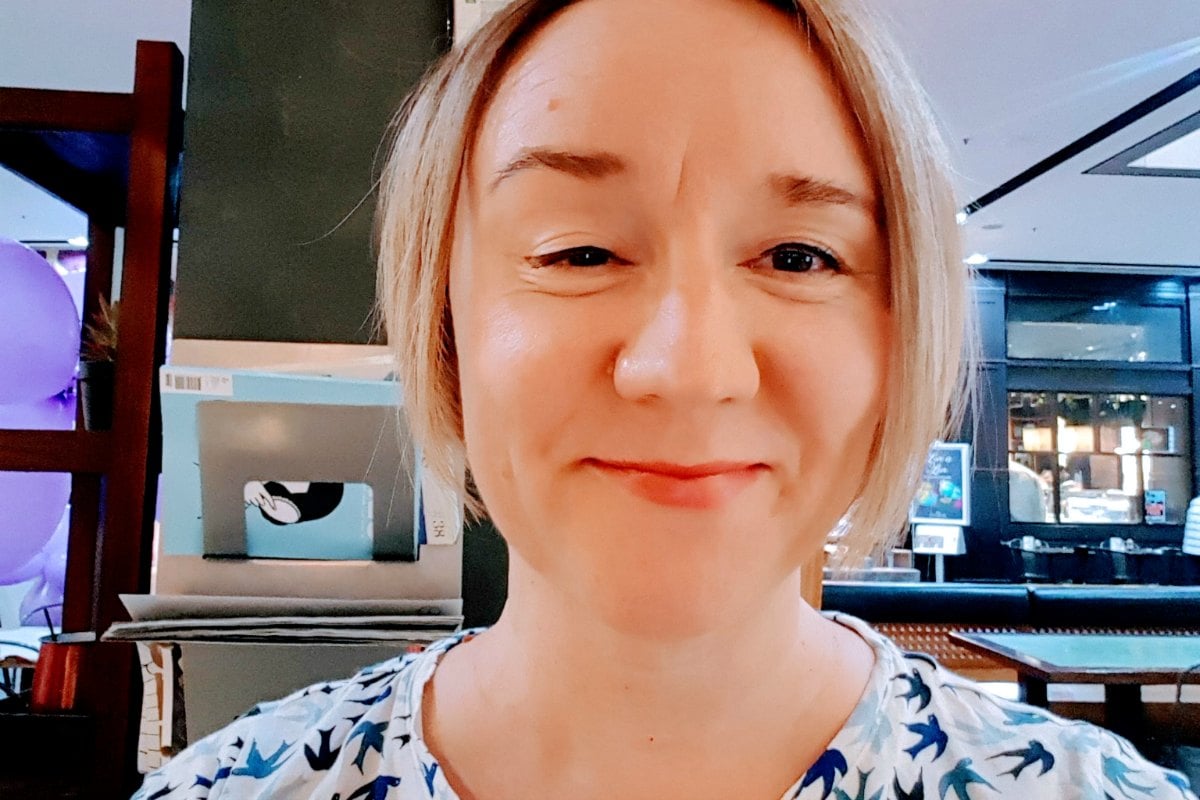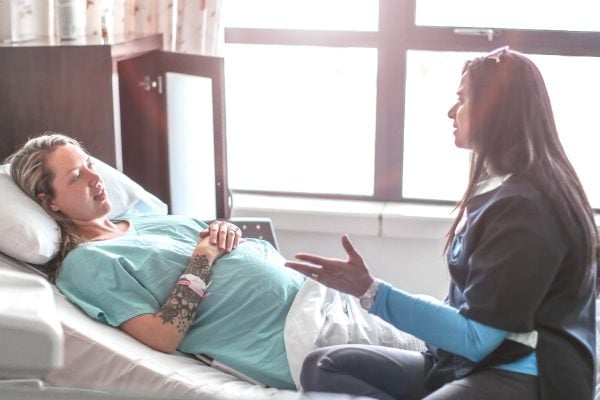
Warning: This post contains mentions of post-partum depression and psychosis, and may be triggering for some readers.
Have you ever had a moment when your answer to a question determined whether your life imploded?
I have.
It came five days into parenthood. I was lying on the floor in my maternity hospital room crying because I was trying to outrun a jaguar chasing me towards a cliff. Things were starting to go very wrong in my brain.
How to talk to people with anxiety. Post continues below.
In the following months, when my mind warped and writhed in the grip of psychosis and later catatonic depression, and when what started out as postnatal psychosis turned out to be a first episode of Bipolar 1 disorder, I could not imagine things being worse.
But they could have been.
My sliding doors moment occurred soon after my midwife discovered me on the floor and said:
“I think you have more going on than the baby blues.”





























































































